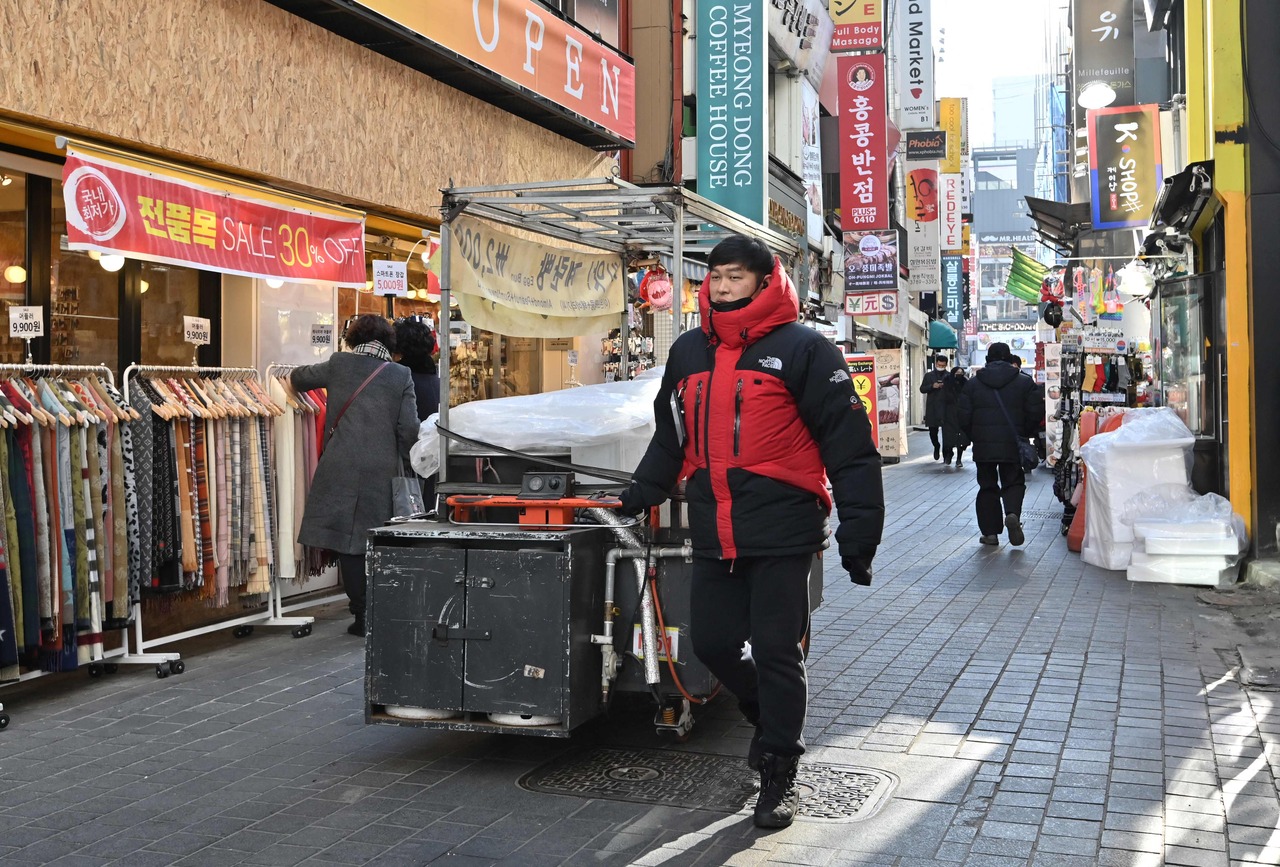South Korea adds most jobs since 2000 as economy weathers Omicron
Sign up now: Get ST's newsletters delivered to your inbox

The latest data also suggest that Koreans have adjusted to living with the virus.
PHOTO: AFP
Follow topic:
SEOUL (BLOOMBERG) - South Korea added the most jobs since 2000, pushing down unemployment and highlighting the economy's resilience to a surge in coronavirus infections that prompted the authorities to tighten curbs to contain the outbreak.
The economy added 1,135,000 roles in January from a year earlier, an 11th straight month of gains, the statistics office said on Wednesday (Feb 16). That is the most since March 2000, when South Korea was cementing its recovery from the Asian financial crisis.
The jobless rate declined to 3.6 per cent from 3.8 per cent in December, exceeding the 3.7 per cent forecast of economists.
Today's result is likely to add ballast to the view the economy could withstand another interest rate increase as the Bank of Korea tries to rein in inflation and normalise monetary policy. Most economists see the central bank standing pat this month, before hiking the rate again to 1.5 per cent in the second quarter.
The latest data also suggest that South Koreans have adjusted to living with the virus, even as the Omicron variant pushes daily cases to record highs. An extra budget to help support businesses through the current tough operating restrictions is pending in parliament.
Nonetheless, the labour market remains at risk from ongoing tough restrictions to contain Omicron, the Finance Ministry said in a statement. It pledged to implement the supplementary budget as quickly as possible once approved.
The strength of annual hiring in January likely partly reflects a low base effect: South Korea's economy shed 982,000 jobs in January last year, the biggest year-on-year drop since 1998, at the peak of the Asian financial crisis.
Employment gains and losses in the report showed:
• The medical and welfare industries added 250,000 positions
• Manufacturing gained 66,000 jobs and transportation and warehouse businesses 121,000 roles
• Construction, lodging and information technology industries also recorded increases
• The financial and insurance industry shed jobs, along with the retail and wholesale sectors
"Job gains are more resilient in the manufacturing and service sectors that don't necessarily require physical contact," said Korea Labour Institute analyst Kim Yoo-bin. "The pace of recovery is different for each sector and the difference is widening, so it's not a perfect recovery yet."

